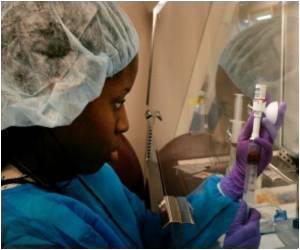A death protein that eliminates rogue cells has been discovered by Australian and British scientists who believe that this would boost the fight against cancer, malaria and diabetes.

"Perforin is our body's weapon of cleansing and death," said Whisstock, from Australia's Monash University.
"It breaks into cells that have been hijacked by viruses or turned into cancer cells and allows toxic enzymes in, to destroy the cell from within," he said. "Without it, our immune system can't destroy these cells."
High-powered microscopes in Australia and at London's Birkbeck College had allowed scientists to examine perforin's structure and function, Whisstock said, revealing a "powerful molecule" that targets malignant or infected cells.
Without perforin the body was unable to fight infections, with studies involving mice which linked defective perforin to leukaemia and heightened cell malignancy.
The discovery also had implications for autoimmune diseases such as juvenile type 1 diabetes and for transplant patients, with the protein linked to both the elimination of healthy cells and tissue rejection, he added.
The 10-year study found that perforin shared a number of molecular similarities with bacterial toxins like anthrax, listeria and streptococcus, and had a blueprint that was close to two billion years old.
"I have worked on this for a long time and it answers a really fundamental mystery of immunity," Whisstock told ABC radio.
"So I think just from a fundamental science perspective, I think it is really, really important and it is actually also a really cool story."
Source-AFP
 MEDINDIA
MEDINDIA




 Email
Email









